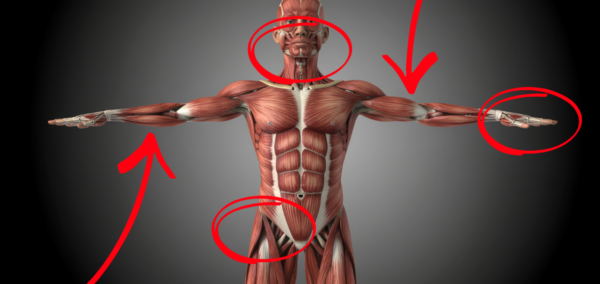
Exclusive: UCU to open indicative ballot on industrial action at University of Sheffield
Recent negotiations have failed to resolve the UCU’s concerns
The University of Sheffield branch of the University and College Union (UCU) will tomorrow (21st January) open an indicative ballot, aiming to sound out their members on the possibility of industrial action at the university.
The ballot is the next major step towards industrial action and strikes and is the latest escalation of a dispute between the university and Sheffield UCU regarding the university’s ongoing staff cost cuts.
Sheffield UCU is demanding that the university commits to no compulsory redundancies and reduces planned cuts to staff costs. In total, the university has said it wants to reduce spending on staff by £23m, with £9m of cuts planned for this year, and £14m of cuts next year.
In December, the union lodged a collective grievance motion with the university. That motion mandated that the university meet at least twice with union officials for negotiations. Those negotiations did not resulted in a resolution.
The Sheffield Tab has seen a portion of the text of the indicative ballot that will be distributed to Sheffield UCU members tomorrow. It says: “In January, two local negotiating meetings took place in an attempt to resolve the dispute.
“Branch representatives have been provided with information about university finances, and have presented university management with several concrete suggestions for alternatives which would reduce any need for staff cuts. As of our second meeting, management were not willing to commit to no compulsory redundancies, nor to substantially reducing their target for staff cuts.”
Most Read
As part of their programme of cost reductions, last semester the University of Sheffield opened a voluntary severance scheme (VSS) for which staff in a targeted list of departments could apply to. Sources familiar with the matter have told The Sheffield Tab that they believe this scheme will exceed the university’s target of £9m of cost cuts this year. The results of the scheme are expected in the coming weeks.
However, Sheffield UCU has told The Sheffield Tab that it still expects the university to enact compulsory redundancies, given the refusal of the University Executive Board (UEB) to rule them out in their negotiations.
The slides of a presentation delivered by vice-chancellor Koen Lamberts last year to an all staff meeting, which have been seen by The Sheffield Tab, state that: “The university is now expecting 2,000 fewer international students in 2024-25, and fewer international students in future years. This means that, as a whole, we will need fewer staff.”
Speaking to The Sheffield Tab, earlier in this academic year, a UCU spokesperson addressed concerns of how strikes could impact students: “It’s something we definitely don’t do lightly. The challenge is: What is the alternative? When we have exhausted all the alternatives, we have to go to strike action or else the outcome is, in the long run, much, much worse for everyone involved.
“So there is inevitably disruption from industrial action, and we have to recognise that, but we think it’s better than the alternative which is the degradation of student experience and staff quality of life. The impact of not taking any action far outweighs the impact of any action that we might take.”
Since cuts to staff spending were announced, the University of Sheffield has repeatedly pointed out that it has prioritised non-staff cuts. In his email last month to staff, announcing the VSS, the vice-chancellor said: “The scheme will work alongside the other measures we’re putting in place, including a range of non-staff reductions such as reviewing our capital expenditure programme and the size of our estate, and reducing discretionary expenditure.”
Last semester, the University of Sheffield said that, pending a planning review (which has since been successful), it will be pausing the delivery of its “flagship” new Central Teaching Laboratory for at least a year. And in November, staff and students protested at the “sudden” closure of the Courtyard Café in the Management School building.

Left, an artist’s impression of the plans for the Central Teaching Laboratory via University of Sheffield. Right, a protest at the Management School against the café closure, via @SheffieldUCU on X
The university’s financial woes mirror similar problems throughout the British university sector. New rules placing limits on students bringing family with them when they come to the UK has resulted in a sharp fall in international student numbers.
According to the Home Office 263,400 sponsored study visa applications were made between July and September, down from 312,500 in the summer of 2023. This year at the University of Sheffield, there are 2,200 less foreign students compared to the 2022-23 academic year.
Falling international student numbers represents a significant loss of revenue to all British universities. Currently, most domestic students pay tuition fees of £9,250 per year, while international students pay a rate of £22,000 per year.
The University of Sheffield’s belief that international student numbers will remain at their current reduced level is a large part of the rationale for its current cost cutting programme.
Sheffield UCU has consistently argued that the university’s financial position doesn’t justify the current cuts.
Sheffield UCU has also criticised continued pay rises and bonuses for university leadership amid the university’s current financial situation. Earlier this month, The Sheffield Tab reported that vice chancellor Koen Lamberts had received a £23,000 pay rise.
A Sheffield UCU spokesperson told The Sheffield Tab today: “Will Koen Lamberts give back his pay rise? A pay rise of £23,000 – that’s a job. And he got that as a pay rise at the same time as they’re trying to make staff redundant.”
With university’s finances come under more scrutiny, The Sheffield Tab has also revealed in recent months that vice chancellor Koen Lamberts has claimed expenses on £17,598 of business class travel expenses this year.
It was also revealed that £248,000 had been spent by the university on security for pro-Palestine student protest action since last January.
The University of Sheffield has been contacted for comment.
Featured image via Sheffield UCU on X.























